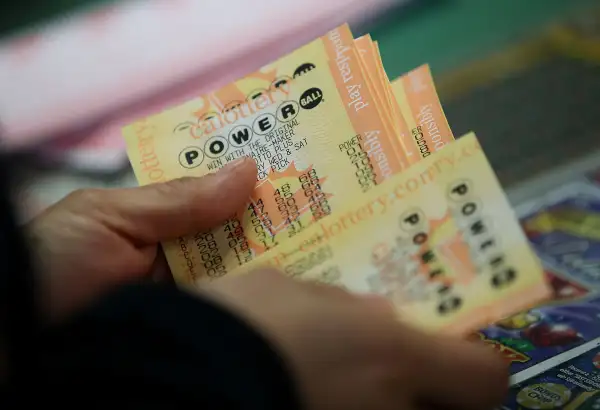The Next Powerball Winner Could Keep an Extra $7 Million Thanks to the New Tax Law

With the latest Powerball and Mega Millions jackpots adding up to about $800 million, someone in America may soon be collecting an enormous windfall. And thanks to changes in tax law signed by President Trump late last year, that person's winnings could be even sweeter.
The Tax Cut and Jobs Act will slash tax bills for most high earners in 2018. The policy was designed to help business owners who want to invest and hire workers, but lower rates also apply to lottery winners, whose prize money the IRS treats like income.
While advertised as $440 million, the next Powerball winner will be awarded $278 million if they opt to take the lump sum, according to the Web site USA Mega. A winner who chooses the 30-year annuity will receive about $14.7 million.
Either way, the winner will end up in the top 37% income tax bracket for 2018, which kicks in at $500,000 for singles (and $600,000 for couples). For the lump sum, the result will be a tax bill of roughly $103 million. Still, if the winner had claimed that prize in 2017 under the old tax rules, they would have faced an even higher 39.6% rate. The difference equates to savings of more than $7 million.
The Mega Millions jackpot, advertised as $343 million, would pay out $215 million in a lump sum, according to USA Mega. That would trigger a federal tax bill of $79.6 million—a savings of more than $5 million compared to the 2017 tax rate for top earners.
To be sure, not all potential winners will enjoy the full benefit. That's because while Congress cut rates, it also eliminated a key deduction that previously helped lower many taxpayers' overall bills. Lottery winners don't just owe taxes to Uncle Sam. They also face state and local tax bills in about three dozen states.
While taxpayers have long been able to deduct what they pay to state and local governments from the income they report on their federal tax forms, the new tax bill caps this benefit at $10,000. Depending on where the winner lives, that provision could offset some or all of the benefit from the new, lower rates.
For instance, in addition to federal taxes, a winner in New York City, would likely owe state and local taxes totaling 12.7% on their prize, or about $35.3 million. Previously, that amount could have been deducted in full from the winner's income for federal tax purposes, yielding savings of about $13 million under the 2018 rate. Under the new rules, that deduction will be largely disallowed, meaning a New York winner could be worse off than last year.
That's an extreme example, however. Ohio, for instance, levies at top income tax rate of 5%, meaning the lost deduction would be worth about $5.1 million, not enough to offset the benefit of lower federal rates.
Meanwhile, states like New Hampshire and Texas do not levy a state income tax at all. California and Pennsylvania do, but do not tax lottery prizes. Winners in these states would enjoy the full benefit of lower federal income tax rates.
The next Powerball drawing is Wednesday; the Mega Millions drawing will take place Tuesday.
